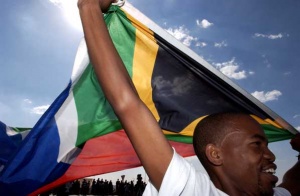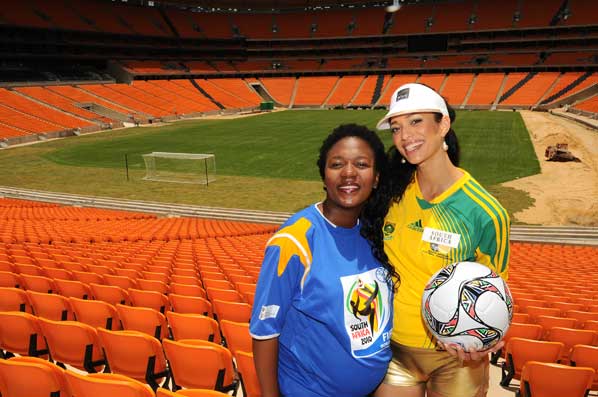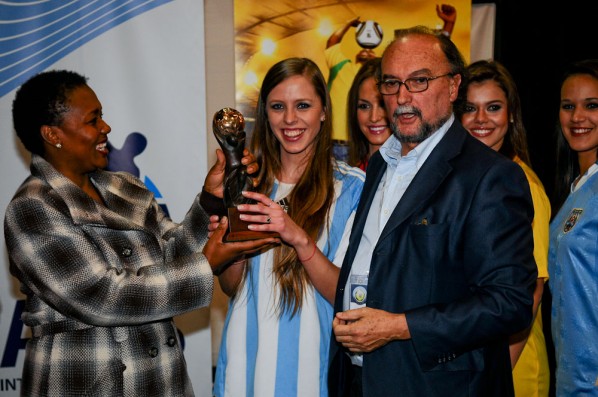Joburg: the blueprint of hosting a mega sporting event

Johannesburg’s position at the epicentre of an incredibly successful World Cup gave its tourism industry not only something to celebrate but also a strong legacy to build upon. The City of Gold also serves as a blueprint to Russia and Qatar – two emerging destinations also hoping to full off World Cup glory.
One of the chief architects of the World Cup success has been the Johannesburg Tourism Company (JTC), which is dedicated to promoting tourism growth in Johannesburg.
During the tournament, the JTC served as the crucial link between sport and tourism, and promoted Johannesburg as a business, sports, events, lifestyle and leisure destination both locally and internationally. Its main vehicle was its “Joburg Rocks” campaign, which highlighted the city’s many tourism attractions beyond the 90-minute football matches.
The World Cup might have come and gone, but the action never stops in Joburg - and the Johannesburg Tourism Company’s colourful seasonal campaigns are designed to package the plethora of events taking place across the spectrum of music, arts, culture, food, fashion, entertainment, sport, and business throughout the year.

(Joburg Fashion Week)
“The City of Gold is more than just the economic hub of the continent - Jozi is a leading, global year round lifestyle destination,” says JTC chief executive Lindiwe Kwele.
A study by Grant Thornton points out that Johannesburg is likely to have had the highest impact from the World Cup. While hosting the lion’s share (some 32 percent) of World Cup fixtures and activities, Joburg certainly pulled out all the stops to give visitors the experience of a lifetime.
With consumer spending by overseas visitors reaching record highs, the local hospitality industry has reaped the benefits of its hard work and investments over the past few years, with extraordinary occupancies and patronage during the World Cup period.
Grant Thornton statistics indicate occupancies ranging from 86.8 percent in the Sandton CBD, to 83.5 percent in the Greater Johannesburg area, and 79.0 percent at ORT.
One million visitors came to Joburg during the tournament – comprising domestic, continental and international guests. The Grant Thornton presentation includes the African Response Survey, which indicates that 96 percent of World Cup visitors to South Africa said that they would possibly return to the country, while 92 percent would recommend the country to friends and family as a holiday destination.
While supporting and leveraging SAT initiatives to ensure the return of visitors, as well as attracting new visitors (diversifying overseas source markets), Johannesburg Tourism Company has consolidated Joburg’s position as trading hub of the region and continent. This will increase opportunities for investment in budget hotel accommodation, as well as increasing leisure expenditure/share of wallet.
Joburg’s World Cup readiness and legacy initiatives included youth development, enhancing tourism service standards, information dissemination, signage and workforce skills.
On a broader macroeconomic scale, the City now boasts increased hospitality and tourism products, an integrated public transport network, world-class transport infrastructure upgrades, better connectivity – as well as extensive positive media attention.

(Lindwe Kwele, CEO, JTC)
The location of two major stadia in the City positions Joburg favourably as a pre-eminent destination for sports tourism and mega-events.
Meanwhile the launch of the Gautrain has exceeded expectations – initial estimates for usage were between 3,000-6,000 people a day, but current figures indicate approximately 13,000 on weekdays and 20,000 at weekends.
Aside from youth development, and fostering an unprecedented interest in the country, one of the most valuable and precious legacies is certainly the unifying effect this mega-event has had on the nation and the individual spirit.
The nation is aiming to build on this renewed sense of pride and patriotism, as well as the sense of anticipation for tackling all the challenges which lie ahead – and which will lead to even greater heights for South Africa and its cities as major global players.

(Miss World contestants in a penalty shootout at World Football House in Joburg during the World Cup)
Sport is integral to making new opportunities. The nation has been bold in creating opportunities in the hosting of global mega-events. But now the challenge is to ensure that its superb stadiums are utilized to their full potential, so South Africa is positioning itself as a hub of sport tourism.
During this year’s World Cup, Johannesburg took a lead by hosting the first exhibition dedicated to showcasing the $600 billion a year sport tourism industry.
Staged at the Sandton Convention Centre, WSDE Sport Tourism Expo featured 400 exhibitors from 22 locations worldwide and some 50,000 visitors. From Abu Dhabi to Rio de Janeiro the world’s leading destinations engaged in five days of top-level debate, interaction and the tabling of lucrative future business deals.

